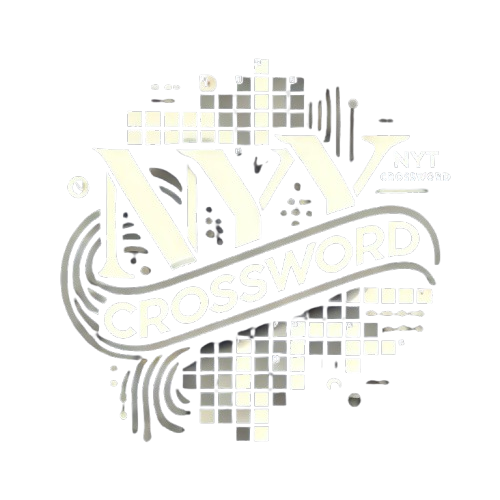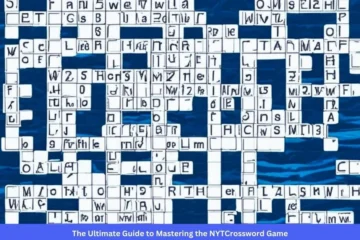Crossword puzzles are a beloved pastime for many, and the New York Times (NYT) Crossword stands out as one of the most prestigious and challenging. Rex Parker, a well-known crossword enthusiast and blogger, has become a trusted guide for countless puzzle solvers. His detailed strategies and insights have inspired many to confidently approach the NYT Crossword. This article delves deeper into his tried-and-true methods to help you conquer the NYT Crossword.
Start with the Easy Clues
One of the most effective ways to gain momentum in solving a crossword puzzle is to begin with the easier clues. Rex Parker emphasizes this approach as it allows you to build a foundation that makes tackling the harder clues more manageable. Here’s how to implement this strategy:
- Scan the Clues: Skim through all the clues to identify the straightforward ones.
- Fill in Short Words: Focus on solving three- or four-letter words, which often have simpler answers.
- Use Crossings to Your Advantage: Completed answers can reveal letters in intersecting words, providing valuable hints for tougher clues.
Starting small boosts your confidence and creates a ripple effect, unlocking other parts of the puzzle.
Build a Vocabulary of Crossword Favorites
Many words, phrases, and abbreviations frequently appear in crosswords. Developing familiarity with these recurring elements is a cornerstone of Rex Parker’s solving technique. Here are some tips:
- Learn Common Abbreviations: Crosswords often include abbreviations like “CEO,” “ETA,” or “Ave.”
- Understand Wordplay: Be ready for clues that rely on puns, double meanings, or word twists.
- Recognize Popular Fillers: Words such as “ERA,” “ORE,” and “ARIA” are staples in crossword puzzles.
Consider keeping a personal list of these “crossword staples” to reference as you practice. Over time, recognizing them will become second nature.
Adjust Your Approach Based on Difficulty
The difficulty of the NYT Crossword increases as the week progresses, starting with relatively easy puzzles on Monday and reaching peak complexity on Saturday. Sunday puzzles, though larger, typically fall somewhere in the middle in terms of difficulty. Rex Parker’s advice is to tailor your solving strategy to the day:
- Monday-Wednesday: Expect straightforward clues with logical answers. These days are perfect for beginners to build confidence.
- Thursday: Brace yourself for clever themes, rebus puzzles (where a single square may hold multiple letters), and unconventional wordplay.
- Friday-Saturday: Be prepared for vague, open-ended, or deceptively simple-looking clues that require more abstract thinking.
Understanding the pattern of difficulty helps you mentally prepare and adjust your expectations for each puzzle.
Crack the Puzzle’s Theme
Themes are a defining feature of NYT Crossword puzzles, especially on Thursdays and Sundays. Rex Parker advises solvers to pay close attention to the theme, as it often holds the key to unlocking the puzzle. His approach includes:
- Identify the Theme Early: Look for patterns or repeated concepts in the clues or answers.
- Use the Title as a Clue: On Sundays, the puzzle title often hints at the theme.
- Think Outside the Box: Be open to creative or unconventional interpretations of clues that tie into the theme.
Spotting the theme early can make the rest of the puzzle significantly easier to solve.
Adopt a Systematic Approach
Rex Parker emphasizes the importance of solving crosswords methodically. A chaotic approach can lead to frustration, while a structured method increases efficiency and enjoyment. Here’s how:
- Focus on One Section at a Time: Concentrate on completing one quadrant or area of the puzzle before moving on.
- Double-Check Your Answers: Revisit completed sections to ensure your answers fit the clues and crossings.
- Stay Patient: Remember, difficult puzzles take time, and persistence often pays off.
By working methodically, you can avoid getting overwhelmed and maintain steady progress.
Utilize Available Resources
While traditionalists may prefer solving puzzles unaided, Rex Parker acknowledges the value of using tools and resources to improve your skills. Here are some options:
- Crossword Blogs and Communities: Blogs like Rex Parker provide insights, tips, and detailed explanations for tricky puzzles.
- Crossword Dictionaries: Specialized dictionaries can help you learn common crossword vocabulary.
- Apps and Solvers: While using apps to solve puzzles is a personal choice, they can be helpful for learning purposes.
The key is to strike a balance between self-reliance and learning from external resources.
Learn from Every Puzzle
Every puzzle you solve (or attempt to solve) is an opportunity to learn and improve. Rex Parker emphasizes viewing mistakes as valuable lessons rather than failures. Here’s how to make the most of your learning process:
- Review Missed Clues: Analyze the answers you missed to understand the logic behind them.
- Study Completed Puzzles: Take note of recurring themes, tricky clues, or unique wordplay.
- Practice Consistently: The more puzzles you solve, the better you’ll become at recognizing patterns and thinking like a constructor.
Remember, even seasoned solvers encounter challenges. The goal is to enjoy the process and celebrate your progress.
Connect with Other Crossword Enthusiasts
Solving crosswords doesn’t have to be a solitary activity. Rex Parker often highlights the benefits of engaging with the crossword community:
- Join Online Forums: Participate in discussions to share tips, ask questions, and learn from others.
- Attend Crossword Events: Competitions and conventions are great opportunities to test your skills and meet fellow enthusiasts.
- Follow Crossword Blogs: Stay informed about trends, new puzzles, and expert advice.
Being part of a community can make solving crosswords even more enjoyable and rewarding.
Embrace the Challenge
Ultimately solving the NYT Crossword is about more than just filling in the grid—it’s a mental workout that sharpens your problem-solving skills and creativity. Rex Parker’s final piece of advice is to embrace the challenge and savor the experience:
- Stay Curious: Approach each puzzle with an open mind and a willingness to learn.
- Be Persistent: Don’t be discouraged by difficult puzzles; every attempt brings you closer to mastery.
- Celebrate Your Progress: Whether it’s solving a single tough clue or completing an entire puzzle, every success is worth acknowledging.
Final Thoughts
Rex Parker’s strategies for NYT Crossword success are a treasure trove of wisdom for solvers of all levels. By starting with easy clues, building a strong vocabulary, and understanding the nuances of themed puzzles, you can enhance your problem-solving skills and enjoy the process more fully. Remember, crosswords are not just about finding the right answers—they’re about challenging yourself, learning new things, and having fun along the way. With practice and perseverance, you too can master the art of the NYT Crossword.
Read more: Trendy Dining Like Happening Restaurants NYT Crossword




